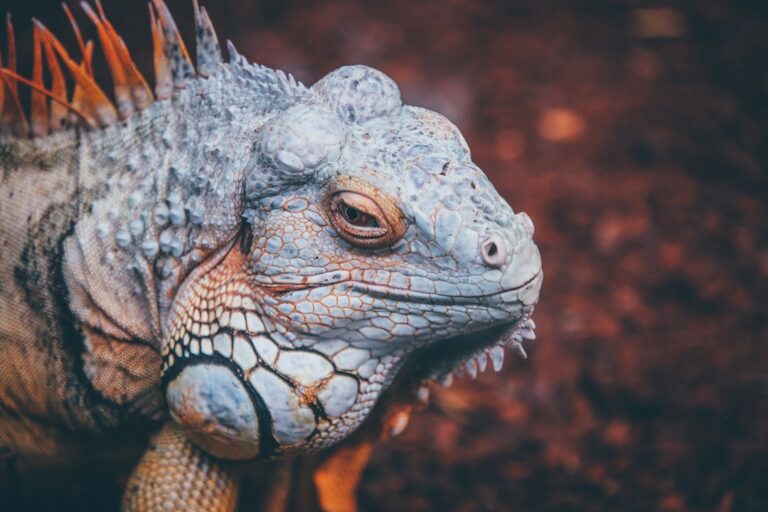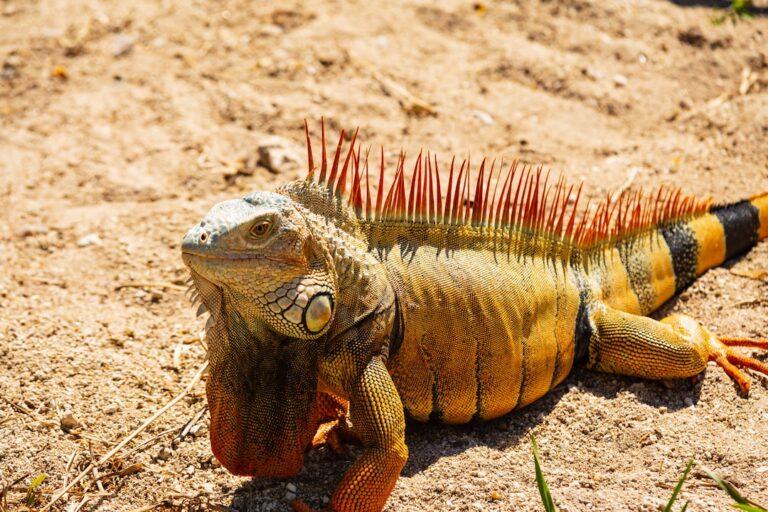Are Iguanas Lazy?
Iguanas are a type of lizard that are native to tropical areas such as Central and South America. They are known for their distinctive appearance, with long tails, sharp claws, and a row of spines along their backs. Iguanas are herbivores, meaning they primarily eat plants and vegetation. They are also known for their ability to change color, which helps them regulate their body temperature.
In terms of behavior, iguanas are generally solitary animals. They spend much of their time basking in the sun to absorb heat and regulate their body temperature. They are also excellent climbers and can often be found perched in trees or on rocks. Iguanas are territorial creatures and will defend their territory from other iguanas.
Table of Contents
Understanding the Definition of Laziness
Laziness is often defined as a lack of motivation or willingness to exert effort. When it comes to iguanas, laziness can be seen as a lack of activity or movement. However, it is important to note that what may appear as laziness in iguanas is actually a natural behavior that is influenced by various factors.
Factors that Affect Iguana Activity Levels
There are several factors that can affect the activity levels of iguanas. One such factor is age. Younger iguanas tend to be more active and curious, while older iguanas may become more sedentary and less inclined to explore their surroundings.
Sex can also play a role in iguana activity levels. Male iguanas are generally more active than females, especially during the breeding season when they are searching for mates.
Health is another important factor that can affect iguana activity levels. If an iguana is sick or injured, it may be less active and spend more time resting or hiding.
The Role of Temperature in Iguana Activity
Temperature plays a crucial role in the activity levels of iguanas. As cold-blooded animals, iguanas rely on external sources of heat to regulate their body temperature. When the temperature is too low, iguanas may become sluggish and less active. On the other hand, when the temperature is too high, they may seek shade or water to cool down.
In their natural habitat, iguanas spend a significant amount of time basking in the sun to absorb heat. This helps them raise their body temperature and increase their activity levels. In captivity, it is important for iguana owners to provide a heat source, such as a heat lamp or heating pad, to ensure that their pet can maintain an optimal body temperature.
The Importance of a Proper Diet for Iguanas
Diet plays a crucial role in the overall health and activity levels of iguanas. In the wild, iguanas primarily eat plants and vegetation such as leaves, flowers, and fruits. A diet that is high in fiber and low in fat is essential for their digestive health.
If an iguana’s diet is lacking in essential nutrients, it may become lethargic and less active. It is important for iguana owners to provide a balanced diet that includes a variety of vegetables and fruits. Leafy greens such as kale, collard greens, and dandelion greens are particularly beneficial for iguanas.
The Impact of Habitat on Iguana Activity
The habitat of iguanas can have a significant impact on their activity levels and behavior. In the wild, iguanas inhabit a variety of environments including forests, deserts, and coastal areas. Each habitat provides different opportunities for activity and exploration.
For example, iguanas that live in forested areas may spend more time climbing trees and searching for food. Those that live in coastal areas may spend more time swimming and basking on rocks. The availability of food, water, and shelter in a particular habitat can also influence iguana activity levels.
In captivity, it is important for iguana owners to provide a habitat that mimics the natural environment of their pet. This includes providing climbing structures, hiding spots, and access to water for swimming.
How Iguanas Spend Their Time in the Wild
In their natural habitat, iguanas spend their time engaging in a variety of activities. As mentioned earlier, they spend a significant amount of time basking in the sun to absorb heat. This helps them regulate their body temperature and increase their activity levels.
Iguanas are also excellent climbers and spend a lot of time in trees or on rocks. They use their sharp claws and strong limbs to navigate their surroundings and search for food. In addition, iguanas are territorial creatures and will defend their territory from other iguanas.
Do Captive Iguanas Tend to be More Lazy?
There is a common belief that captive iguanas tend to be more lazy than those in the wild. However, this is not necessarily true. The behavior of captive iguanas can vary depending on various factors such as diet, habitat, and overall health.
If an iguana is provided with a proper diet, a stimulating environment, and regular exercise, it can maintain a healthy level of activity. On the other hand, if an iguana is kept in a small enclosure with limited opportunities for exercise and stimulation, it may become more sedentary.
It is important for iguana owners to provide a suitable environment that allows their pet to engage in natural behaviors such as climbing, basking, and exploring. This can help prevent boredom and encourage physical activity.
The Benefits of Encouraging Iguana Activity
Encouraging activity in iguanas can have several benefits. First and foremost, regular exercise helps maintain a healthy weight and prevents obesity, which can lead to various health problems. Physical activity also promotes good muscle tone and overall strength.
In addition, providing opportunities for activity and exploration can help prevent boredom and stimulate the mind of an iguana. This can lead to a happier and more content pet.
Tips for Keeping Your Iguana Active and Healthy
There are several practical tips that iguana owners can follow to keep their pets active and healthy. First and foremost, it is important to provide a suitable habitat that allows for natural behaviors such as climbing, basking, and exploring. This includes providing climbing structures, hiding spots, and access to water for swimming.
A balanced diet is also essential for iguana health and activity levels. It is important to provide a variety of vegetables and fruits that are high in fiber and low in fat. Leafy greens such as kale, collard greens, and dandelion greens are particularly beneficial.
Regular exercise is also important for iguanas. This can be achieved through supervised time outside of the enclosure or by providing opportunities for climbing and exploring within the enclosure.
In conclusion, iguanas are fascinating creatures with unique behaviors. Understanding the factors that affect their activity levels can help iguana owners provide a suitable environment that promotes physical activity and overall health. By following the tips mentioned above, iguana owners can ensure that their pets lead happy and active lives.
If you’re interested in the behavior of reptiles, you might also want to check out this article on how often iguanas poop. It provides valuable insights into the digestive system of these fascinating creatures and explains why they may have a reputation for being frequent poopers. Understanding their bathroom habits can help iguana owners provide proper care and ensure their pets’ health and well-being.







